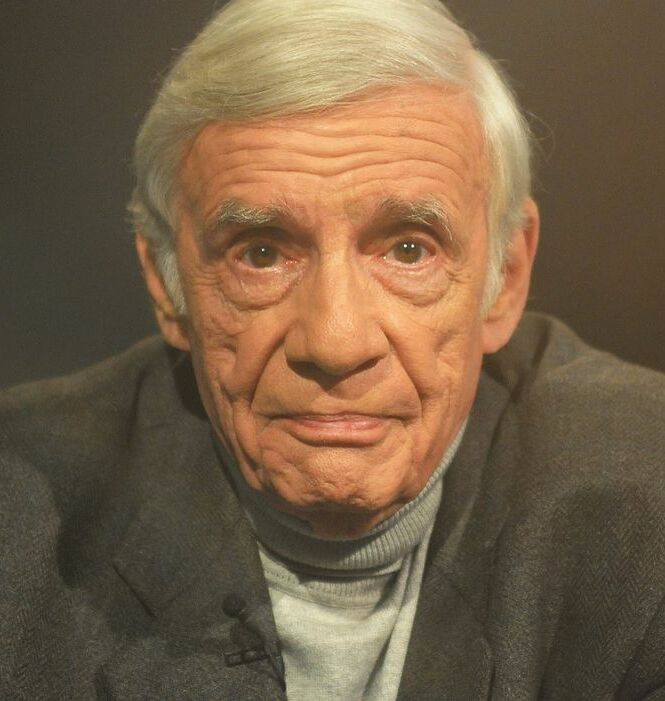He was himself, without labels, himself and no one else. With a French first name and an English last, Olivier Todd had not only been shaped by two cultures whose codes, languages and greatest authors he mastered so superbly. A pillar of France Observateur, which became Le Nouvel Observateur, a great reporter for the BBC, number 2 at L’Express, a biographer of Camus, Brel and Malraux, he was also related by marriage to a trio of graduates of the Ecole Normale Supérieure, Aron, Sartre and Nizan, who were to embody three of the great currents of the post-war French intelligentsia.
Paul Nizan, whose daughter Anne-Marie he married, had been the most brilliant intellectual and journalist in the French Communist Party before becoming a total outcast for denouncing the Molotov-Ribbentrop Pact, the division of Central Europe between Hitler and Stalin. Killed on the front in 1940, Nizan was to remain a ghost of the French Left for a long time before Jean-Paul Sartre resurrected him in the mid-1960s by prefacing the re-edition of Aden Arabie.
Sartre did not know it, but he was to transform this anti-Stalinist revolutionary, whose death had frozen him in eternal youth, into a figure of May ‘68. The opening line of Aden – ‘ I was twenty [and] I will not let anyone say that it is the most beautiful age in life ’ – expressed a whole generation, and then there was Aron.
An editorial writer for Le Figaro, Raymond Aron was the only one of the three who was not left-wing but, like Sartre, he had always kept in touch with Henriette Nizan, ‘ Rirette ’, the widow of their late friend. Sartre and Aron no longer spoke. Only the defence of Soviet dissidents brought them together in the mid-1970s, but Olivier alone ensured the unlikely survival of the trio.
He was their adoptive son-in-law, from elsewhere and unusual enough to irritate and interest them, even seduce them at the same time. Born of an unknown father, the son of an English communist living in Paris and the grandson of the lesbian editor of British Vogue, Olivier was far too left-wing and anti-conformist for Aron to recognise himself in him, but the liberal appreciated his rejection of the political poetry of French intellectuals and his adherence to the great pragmatic thinkers from across the Channel.
Sartre, for his part, appreciated the fact that this fully left-wing anti-communist opened a window on the American and British worlds to the columns and editors of his journal, Les Temps modernes.
Olivier had everything it took to become the heir to one of the two post-war popes, but he never really got close to Aron, who was too far to the right for his taste, and he always kept his distance from Sartre, whom he would no doubt have preferred to be Camusian. At a time when it was an insult to Paris, he was a social democrat and a de facto representative, without credentials, of British Labour.
Because he and Anne-Marie, like my parents, belonged to the very small world of the anti-colonialist and anti-communist left, I grew up alongside Emmanuel, his son. Mano was a bit like a brother, Olivier like an uncle to me, but my most vivid memory of Olivier goes back to those Mondays in the autumn of 1971 when, as a trainee at the Observateur, I heard him quoting the Anglo-Saxon press to explain the world to a team that was not crazy about Labour or the United States. There was a lot of gnashing of teeth, but Olivier…
It was Olivier, handsome, intense, much loved by the ladies and the only person at the paper who could one day have replaced Jean Daniel, with whom he had as much political complicity as he did bitter rivalry.
He had just returned from Panorama, the legendary television programme that Pierre Desgraupes had invited him to appear on as a sign of openness, but from which he had slammed the door after failing to evoke the Algerian war as he would have liked. He had thus become one of the best-known journalists in France, prestigious and recognised in the streets. Just as Nizan had been the PC’s, he was the Observateur ‘s favourite child, but at the end of a long report in Vietnam, this man who had so denounced the American intervention sent the weekly of the intellectual left a report denouncing the forthcoming unification under the rule of a Stalinist party.
That was Olivier, a committed journalist with total intellectual honesty and the courage to break with his political, social and emotional milieu. With the agreement of Jean Daniel, who felt that the readership of L’Obs would not have followed, the whole direction of the paper had been changed before his plane home had landed. For Jean, it was the paper and the slow reconstruction of a socialist left that were at stake. For Olivier, it was the truth. Jean worked every week to reduce the Communist vote, but was careful not to clash head-on with the prevailing ideas on the left, not even those he did not share. Jean largely succeeded in this, but Olivier was determined not to allow himself any political derogation from his duty to bear witness and inform, even though in the long term Jean’s objectives were also his own.
Complex and painful, the break-up could have become downright ugly had Jean-François Revel not been able to convince Olivier to join him at L’Express. The tone there was social-democratic and centre-right, right-wing and left-wing, but the owner, Jimmy Goldsmith, was quick to sack this man from L’Obs, who leaned more towards Mitterrand than Giscard.
‘I am 50 years old. I’m finished,’ he told me that day. That was true of the journalism. No editorial office reached out to him, but Olivier was left with the other life that his talent for writing would offer him, that of the biographer of Brel, whom he loved as much as Bob Dylan, of Malraux, whom he admired so deeply, and of Camus, his only master.
(Photo: Ciramor1992, CC BY-SA 4.0 via Wikimedia Commons)




